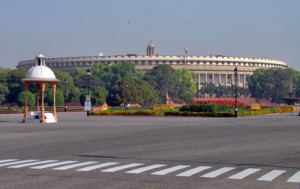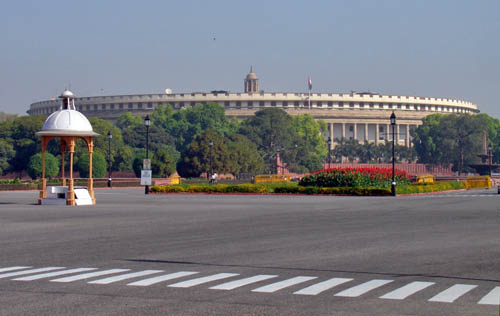 Track2Realty-Agencies: The Centre is ready with an ambitious plan to sell surplus government land to generate cash to ease financial pressures, as suggested by the Vijay Kelkar Committee on fiscal consolidation. A Cabinet note prepared by the Finance Ministry within days of the Kelkar Panel submitting its recommendations says that proceeds from the sale or lease of surplus land, seen as a non-performing asset, would be used only to repay loans or create capital assets that will generate recurring revenue.
Track2Realty-Agencies: The Centre is ready with an ambitious plan to sell surplus government land to generate cash to ease financial pressures, as suggested by the Vijay Kelkar Committee on fiscal consolidation. A Cabinet note prepared by the Finance Ministry within days of the Kelkar Panel submitting its recommendations says that proceeds from the sale or lease of surplus land, seen as a non-performing asset, would be used only to repay loans or create capital assets that will generate recurring revenue.
The upfront statement of objective is apparently a counter to any criticism that the government is selling family silver to feed its populist policy impulse.
The proposal virtually lays down the policy that outright sale of land is to be preferred over other modes of earning cash from it — like lease and licensing. The government says that land leases are a losing proposition since the rental is out of sync with market value. Also, regaining possession of land after expiry of lease is a tough act.
Any sale of land with market value of more than Rs 50 crore would require Cabinet approval while those below would have to be disposed as per laid-down e-auction procedure.
Crucially, for purposes of leasing, the Vijay Kelkar committee’s proposal has suggested that the rental be fixed on the basis of elaborate criteria based on market value of land and the expected appreciation.
The move to monetize land coincides with the raging debate over how to exploit government assets, including more divestment in PSUs to bridge the yawning fiscal deficit. The Kelkar committee warned that the failure to move briskly would expose the country to a crisis worse than what it had endured in 1991. The report suggested that exploitation of the government’s assets could play a key role.
Although most government departments do not have an exhaustive asset register, the assessment is that shipping, defence, posts, airport authority and railways would be sitting on the largest land banks. According to estimates, railways alone can monetize around 10,000 acres in urban centres, generating Rs 50,000 crore. Similarly, port trusts can monetize around one-fifth of 2.5 lakh acres they own.
The new land alienation policy may even cover Airport Authority of India and port trusts that enjoy statutory powers to grant lease on their own. Besides revenue for the cash-strapped exchequer, the move will result in the creation of a maiden database of government land and identification of surplus land with all public entities, PSUs included.
According to reports the Finance Ministry has moved quickly on the land issue as suggested by the Kelkar panel even though it took almost four weeks to dismiss the panel’s suggestion to do away with fuel, fertilizer and food subsidy and go slow on proposed food security law.
Officials pointed out that the move was a follow-up to the Ashok Chawla committee on allocation of natural resources that has been under discussion for months.
The draft policy lays out procedures for sale of land to cut out arbitrary actions that expose the government to charges of corruption like Cabinet nod for land assessed at over Rs 50 crore.
A Public Sector Land Management Committee comprising top secretaries will be tasked with creation of a database within a year. It would ensure that land records are updated and assess the market value based on floor area ratio, presence of utilities, the development potential and availability of minerals around the site. The government departments would also be asked to boost land’s market rate by value addition.





